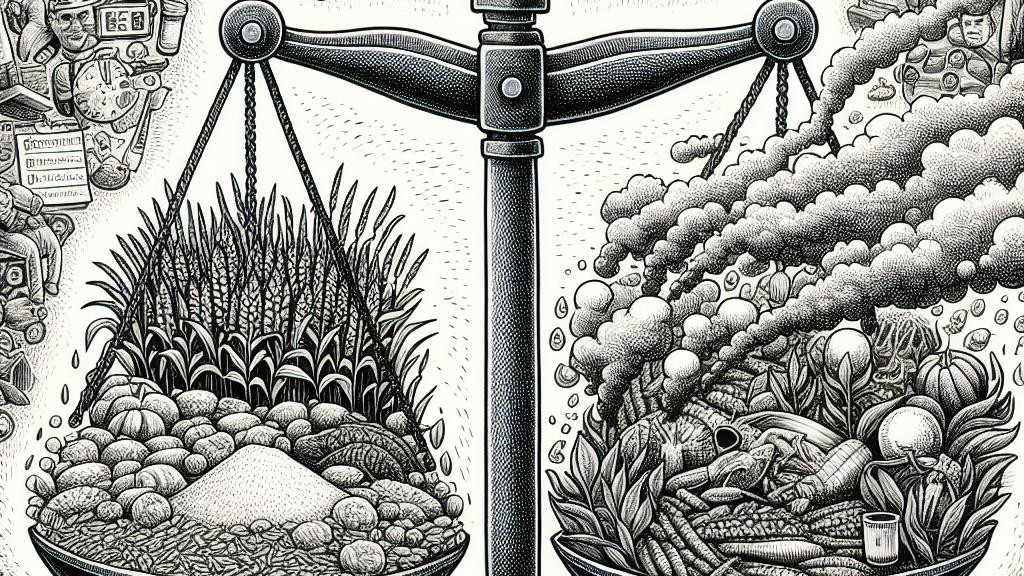Understanding the Impact of Global Issues on Fertilizer Production
Overview
- Fertilizers are essential for global food security, yet they contribute to environmental degradation.
- Geopolitical tensions, such as the ongoing conflict in Ukraine, disrupt fertilizer supply chains and threaten global stability.
- Adopting sustainable practices and technological innovations is crucial for a resilient fertilizer industry that safeguards our future.

The Indispensable Role of Fertilizers in Global Agriculture
Fertilizers are often called the lifeblood of modern farming, as they allow crops to flourish and yield bountiful harvests. Without these nutrient-rich substances, global food production would dwindle—imagine millions facing hunger! Historically, the Green Revolution saw the introduction of synthetic fertilizers, which significantly boosted food production. For instance, countries like India experienced a staggering 300% increase in wheat yields, transforming their agricultural landscape. Yet, there’s a flip side: the excessive use of fertilizers leads to greenhouse gas emissions, contributing to climate change. We face a daunting challenge; we must find a balance between ensuring food security and protecting our environment—and time is of the essence.
Geopolitical Conflicts: Disrupting Fertilizer Supply Chains
Geopolitical conflicts have a profound and often devastating impact on agricultural stability. Take the war in Ukraine, for example; it created shockwaves throughout the global fertilizer market, causing prices to skyrocket. This crisis hit hard in countries heavily reliant on imports, particularly in Africa and Latin America. To illustrate, nations like Nigeria faced significant food supply challenges as fertilizer shipments dwindled. Brazil, recognizing this vulnerability, quickly adjusted its agricultural policies and implemented new strategies to mitigate the crisis. Clearly, the interconnectedness of global politics and food production requires us to rethink our approaches to ensure food security.
China's Dominance: A Powerful Influence on the Fertilizer Market
As the largest producer of nitrogen and phosphate fertilizers, China has solidified its dominance in the global fertilizer market. This positions them as a key player capable of influencing pricing and availability worldwide. Picture this: it's akin to a game of monopoly, where China holds a significant number of cards, allowing it to dictate terms while leaving other nations vulnerable. Countries like Brazil and Argentina must navigate these waters carefully, as they depend on Chinese exports to sustain their agricultural sectors. Such dynamics necessitate that nations reevaluate their dependencies and consider fostering domestic production capabilities to secure their futures.
Towards a Sustainable Future: Innovations in Fertilizer Production
So, what’s the way forward? Sustainability is not just a buzzword; it’s a necessity! Developing greener fertilizer production methods could not only reduce emissions but also bolster food security. For instance, imagine if we harnessed solar or wind energy to create fertilizers. It’s more than just an idea; it’s happening! Moreover, practices like nutrient recycling from organic matter present exciting opportunities for innovation. By transforming agricultural waste into useful fertilizers, we can create a circular economy that benefits the planet. Adopting these sustainable practices ensures we meet current needs while preserving resources for future generations.
Global Responses: Collaborative Efforts to Secure Fertilizer Supply
In response to these mounting challenges, nations are stepping up with proactive measures. The United States has initiated a 'Global Fertilizer Challenge' aimed at tackling supply chain vulnerabilities and promoting sustainable practices. Similarly, the European Union is fostering collaboration among member states to stabilize agricultural production. Brazil’s national fertilizer strategy exemplifies a commitment to reducing import dependencies while enhancing local production. Even Russia, through fertilizer donations, seeks to influence and strengthen ties with African nations. These collective efforts signal a turning tide, as countries recognize the importance of resilience and sustainability in the fertilizer market.

Loading...